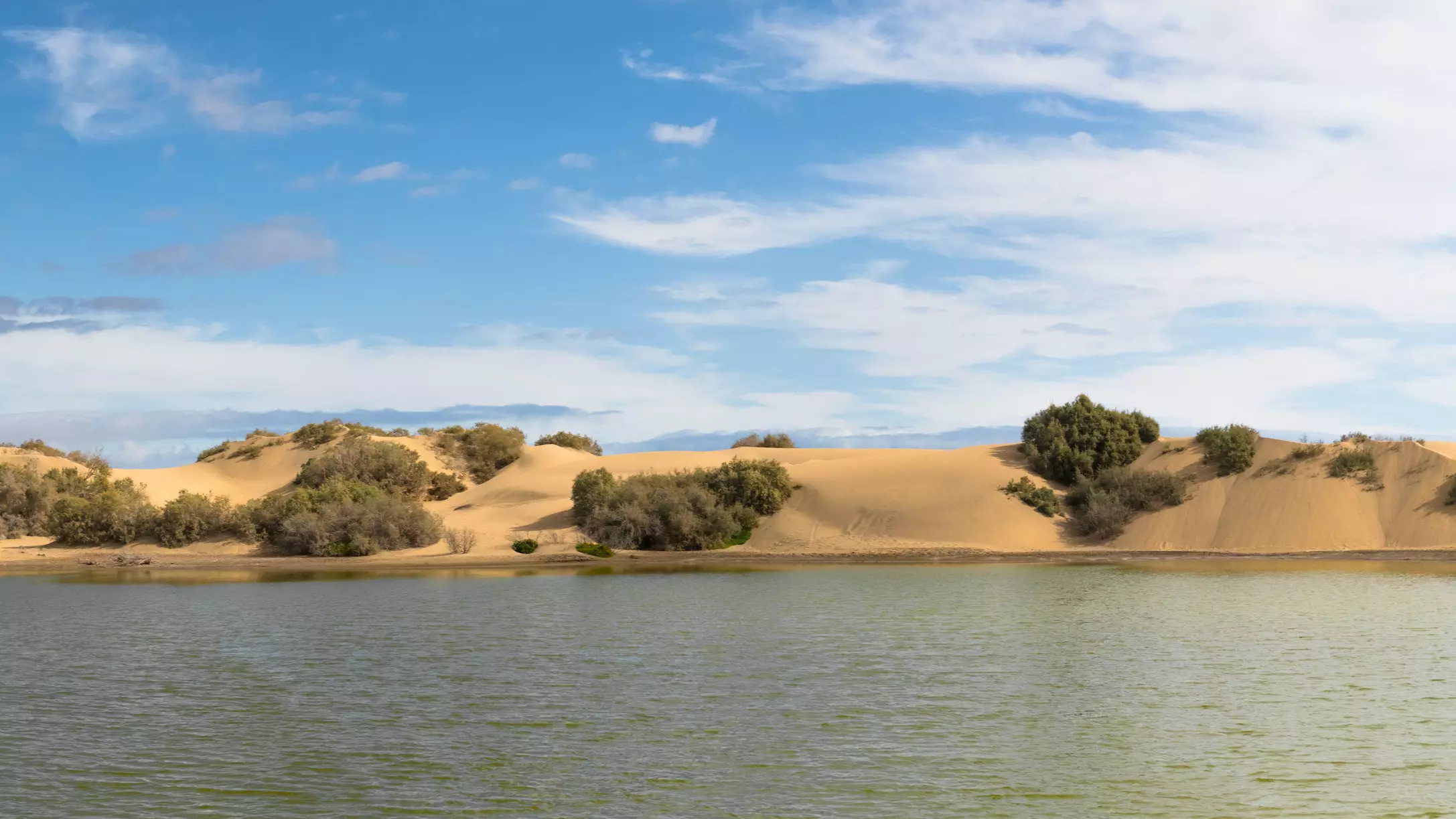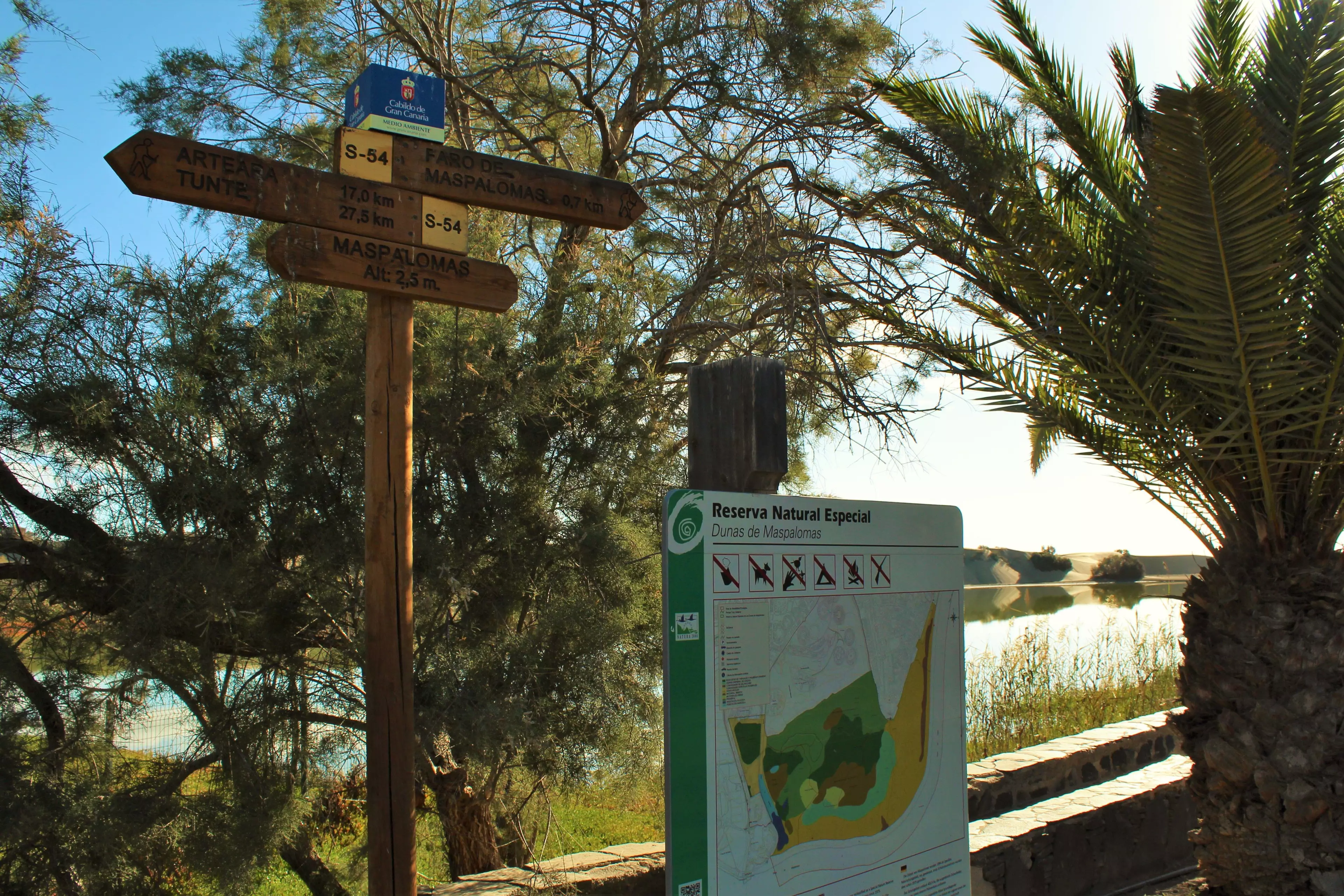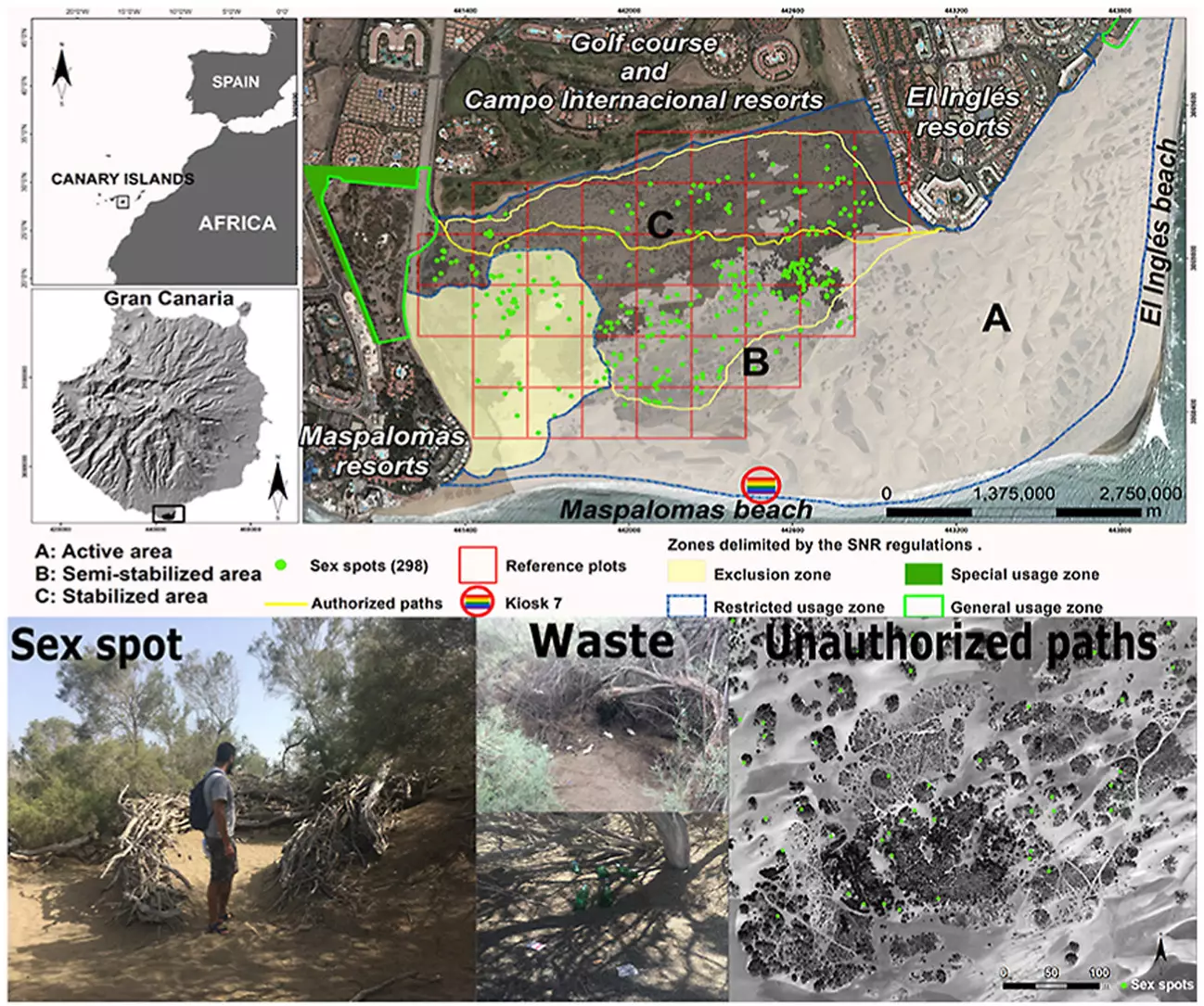
People having outdoor sex on beaches and sand dunes in the Canary Islands are causing damage to the local ecosystems, a new study has found.
The research, which was published in the Journal of Environmental Management, is titled 'Sand, Sun, Sea and Sex with Strangers, the "five S's". Characterizing "cruising" activity and its environmental impacts on a protected coastal dunefield.
The team of researchers analysed cruising in a protected dunefield in Gran Canaria, defining the activity as a 'concept which designates a practice of social interaction that consists of anonymous sexual encounters, mostly among homosexuals, in open and/or closed public spaces'.

They wrote: "We selected the Dunas de Maspalomas Special Natural Reserve (DMSNR) in Gran Canaria (Canary Islands, Spain), which has four main characteristics making it a suitable laboratory for the development of this study: 1) it is a gay-friendly tourist destination, 2) where cruising is openly practised, 3) on a dunefield, 4) which is also a protected natural area."
Advert
They found that a rise in such illegal outdoor sex is wreaking havoc on plant life in the area, writing: "The activities developed in these sex spots impact directly on the aeolian landforms and on eight native plant species, three of which are endemic species."
It is believed that this problem is down to people leaving condoms, faecal matter and other litter in the area, with people often heading to the so-called 'sex spots' because they were surrounded by 'bushy, dense vegetation' - which provides them with a secluded area for cruising.
The report said: "The direct impacts generated around the sex spots can be observed in several ways, such as the impacts on the vegetation, the abandonment of waste or the presence of urinal and defecation locations.

"The most representative (in proportional order) are cigarette butts, torn/cut vegetation, toilet paper and wipes, condoms, fruit peel, cans and faeces.
Advert
"This activity produces direct impacts on the aeolian landforms and on the vegetation, as well as on the environment in general through the generation of waste and illegal toilet spots."
Co-author Professor Patrick Hesp said close monitoring is needed to help tackle the problem, along with better education on the damage cruising can cause, adding that there is also a similar problem at sand dunes in Australia.
"No matter what the human activity, popular coastal tourist locations need to closely monitor ecology and erosion trends," Hesp said.
Featured Image Credit: AlamyTopics: Study, World News, News, Sex and Relationships